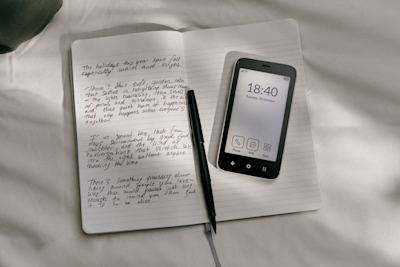
The Lecture: Neuroscience of Digital Distractions
In June, the Mudita team attended an insightful talk by TEDx speaker, Huffington Post blogger, and author of Homo Distractus Dr. Anastasia Dedyukhina. It was a great speech dedicated to understanding how the internet is changing our brain.
Anastasia cited several neuroscientific research projects explaining our behavioural patterns and how we are affected by digital distractions. She gave us insights on how to better coach our brains to fight social media addiction and stay focused. We have listed below some of the lessons we learned during the lecture.
How do we get addicted?
Nowadays many companies are trying to actively have us addicted to digital devices and apps. One of the best ways to describe it is by using The Hooked Model (by Nir Eyal) which explains the habit formation. This model consists of a four step loop: 1 – Trigger, 2 – Action, 3 – Reward, 4 – Investment.
The Hooked Model by Nir Eyal
The first step relates to dopamine addiction. Everytime we receive a notification, we are getting used to dopamine levels that create the need to increase the exposure to the triggers (in this case notifications).
At a certain point, we don’t even realize that we’re looking for the triggers that give us a dopamine rush. We’re scrolling through Facebook because we’re used to the fact that every now and then someone may give us a ‘like’. This reminds us of the ‘pigeon experiment’ which was lead by B.F. Skinner. During the experiment, a pigeon was placed in a cage with a button. Every time the bird pecked the button, it was rewarded. After a while, the researchers added a twist to the experiment so that the bird would be rewarded at random. This caused the pigeon to peck at the button multiple times, more often than ever, expecting a reward.
The same happens in a real life, where the trigger is created by companies making us spend as much time possible online for a given reward. For example, filling in information on our social profiles motivating us with a progress bar, watching adverts in order to get a short free trial, checking updates so we won’t be worried that we’ve missed anything etc. One of the best ways to achieve this is to create notifications that will remind us to act again, towards getting a new reward. Once in place, regardless of notifications, we begin to check Facebook to see what’s new or to see if someone has messaged us or left a comment.
How has the level of awareness changed?
Do you remember a time when sugar was added to everything and no one complained about it? Now everything has changed, due to the growing awareness of the negative impact sugar has on our health. Many people limit or even stop consuming sugar-containing products altogether.
Due to societal pressure, every manufacturer is obliged to inform customers whether or not their products contains sugar and more specifically, how much. In addition, companies have started producing low-sugar products and those without sugar in them.
As with increased health concerns people have become more aware of data processing. At the beginning of the Internet era, collecting user data was obvious and was treated like a currency everyone was giving unspoken consent to. It was an inherent part of our online experience.
Now with the awareness that companies are eager to use our personal data to their own profit, people are more concerned and cautious of companies using their data. We started reading what hides behind the checkboxes we use to accept, double-checking our privacy settings, being less likely to leave out personal contacts and more careful posting personal content to Social Media.
How did the term multitasking appear?
Nowadays digital technology encourages us to multitask more than ever. In the past, multitasking was typically used in specific survival-related situations. When the first computers were introduced, the perception of multitasking began to change. Old computer processors weren’t fast enough and the operators had to wait a long time for tasks to finish. In the meantime, it was required to perform another action, so the machine needed to be stopped in order to work on another task. That was a waste of resources.
In order to improve the situation, it was decided that operators should be able to enter new data, while the machine is computing its previous task. That’s how multitasking gained a new context, abstract to the one we, as humankind, knew for thousands of years. This was the birth of having multiple ‘windows’ or ‘tabs’ to work in.
Nowadays we feel the urge to check social media or emails while working, we might open a new tab and see if there are any new messages, or if a movie has downloaded, or if there are any new articles, etc.
Realizing and accepting the current state of things keeps us on the right track. To proceed further and resist technology interfering with our lives we can apply a number of techniques and listen to the advice given to us by those who’ve have found the balance between digital and real life. To regain back control of your time and attention without getting rid of technology we recommend you try the following challenges we have taken from Anastasia’s talk and her book Homo Distractus :
Turn off notifications to keep your focus.
Remove devices out of sight to reduce the pressure on your willpower.
Limit your use of social media. Define how much time you will allow yourself to spend and try to follow it strictly. You may use software that sets time limits on your apps.
Track and limit the time you spend on social media using dedicated apps.
Buy an alarm clock and charge your mobile phone outside of your bedroom.
Practice mindfulness as this will help your brain to stay focused.
Stay aware of where and why you leave your personal data. Check your privacy settings on social media and other software, review all permissions.
Keep your phone away when you are talking to somebody in person.
Manage your online reputation. Log out of your accounts, clear your browser cookies and search for yourself to see if you are satisfied with the results.
Take a 24 hour break from social media (or a whole week if you can).
Create a technology-free zone at home, or at least free from an internet connection.
This list could go on and on, as there are plenty of ways we can embrace ourselves to protect us from digital dependence. We need to realize that avoiding distractions is not just a matter of willpower, we need to accept our limitations and work on them rather than against them.
Hopefully you found this article useful. Do you have any other ways of coping with distracting technology? What distracts you the most? Have you tried our challenge?
If you enjoyed reading this article, you might be also interested in Anastasia’s guest post First five steps to becoming a digital minimalist in our Journal.
Is there anything you’d like to add, have we missed anything? If you’re interested in sharing your experiences with us or writing a guest post for us, send us an email via hello@mudita.com!
Please feel free to get in touch via social media (send us some photos or videos too), you can find us on Facebook, Twitter and Instagram, let’s connect! To learn more about Mudita, take a look at our website and our other posts.
If you enjoyed reading this article, please share and recommend it!
Related stories

Why Spring Daylight Saving Time Feels So Disruptive
Science explains why losing one hour in spring can affect sleep for up to a week. Here's how to prepare your body for the DST transition.

Is Short-Form Video Hurting Your Focus?
New research shows short-form video may weaken attention. Explore how mindful tools and Mudita Kompakt support healthier digital habits.

What to Look for When Choosing a Minimalist Phone
Looking for the best minimalist phone? Learn which features matter most, what to avoid, and how Mudita Kompakt combines simplicity, focus, and mindful design.
If you'd like to receive the best stories from our blog, keep up to date with our progress and get notified about our product releases and special discounts.